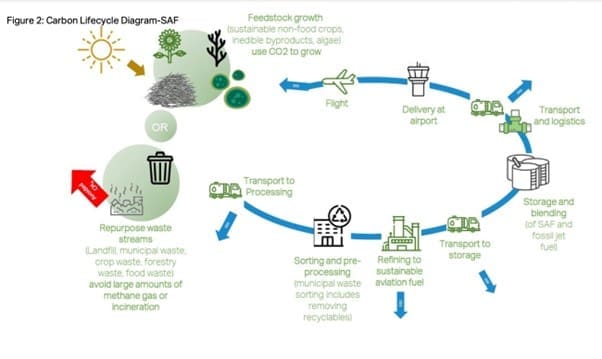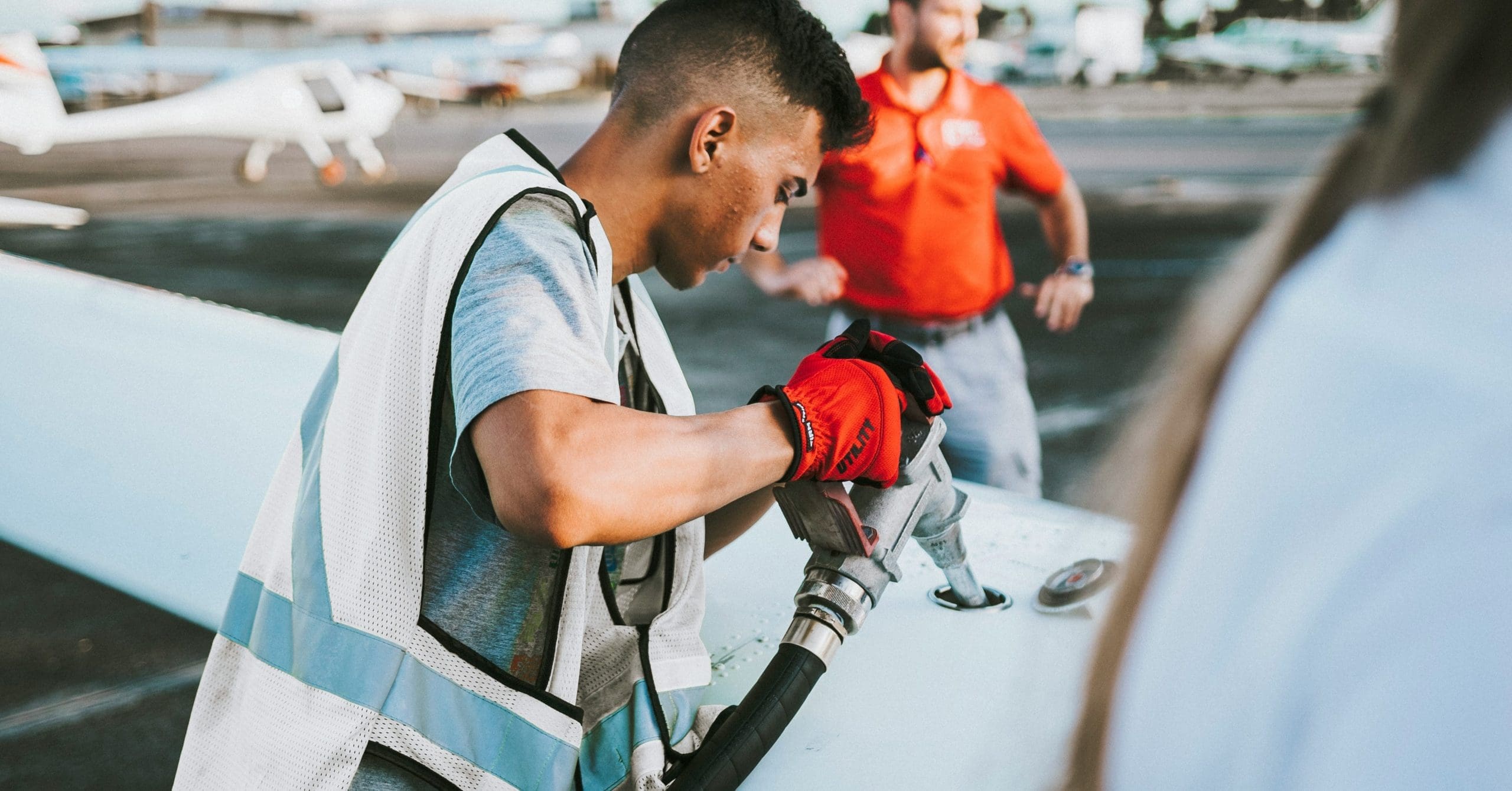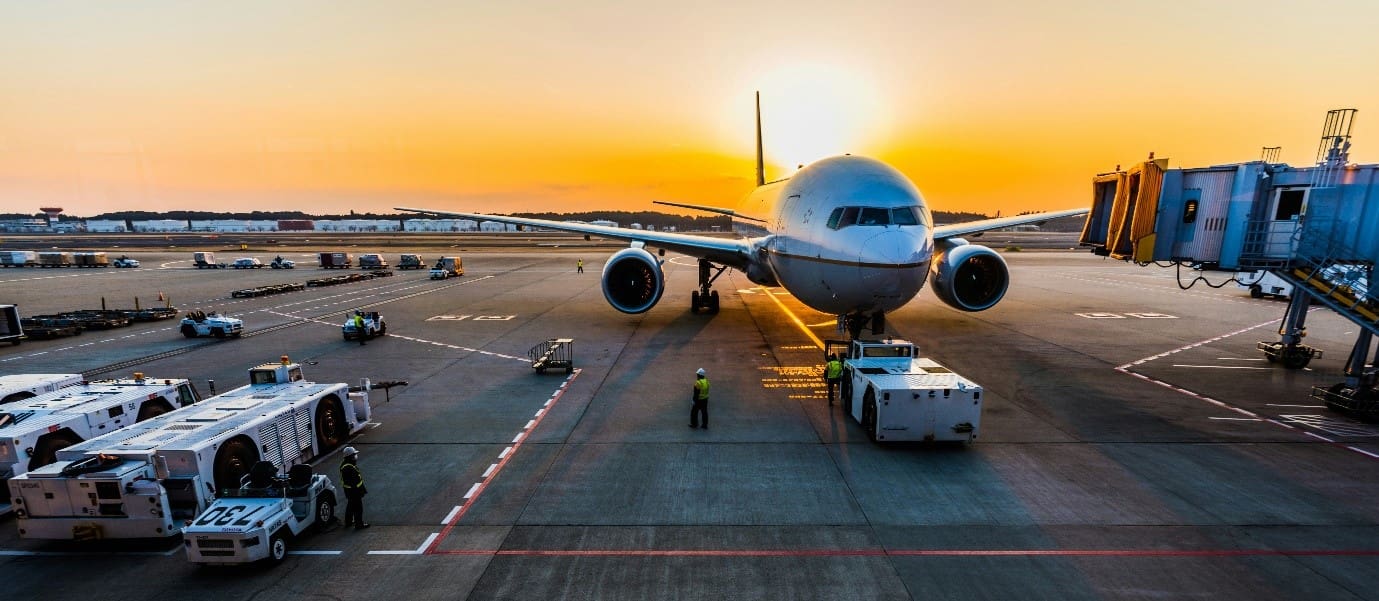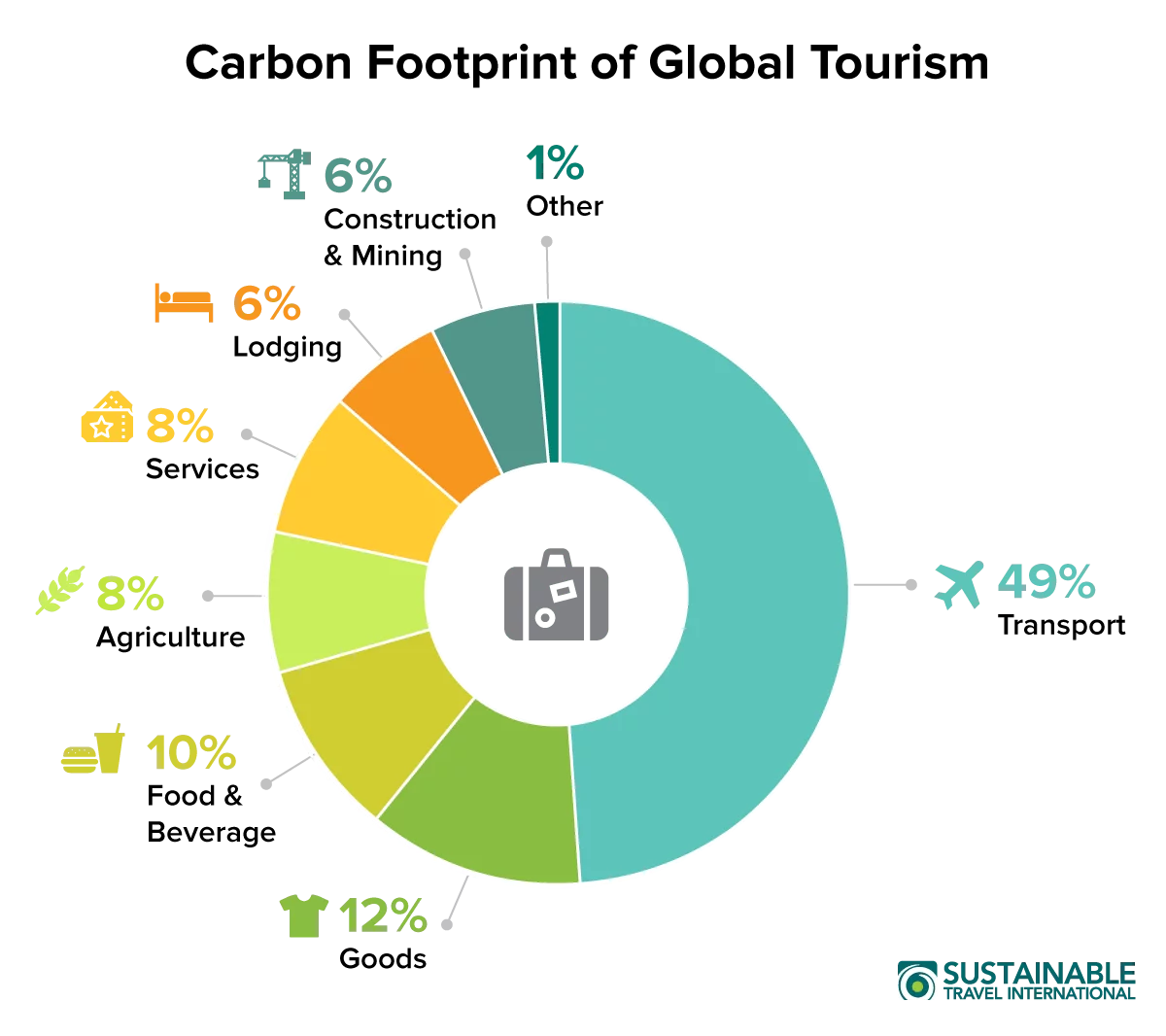Flying today is responsible for approximately 3% of global emissions and transport overall 11%.
Airlines could cut their carbon footprints by transitioning to Sustainable Aviation Fuel (SAF)
SAF is a type of biofuel meaning it is made from renewable plant or animal materials rather than fossil fuels and it has the potential to cut aviation greenhouse gas emissions by 60 to 80% compared with traditional jet fuels.
There are several types of feedstocks used in the production of SAF, including:
- Biomass: organic materials such as agricultural residues, algae, and dedicated energy crops.
- Waste Oils and Fats: Used cooking oil (UCO), animal fats, and other waste oils.
- Municipal Solid Waste: Organic waste from households and businesses.
- Sustainable Feedstocks: sustainably sourced plant oils.
The production process for SAF typically involves converting these feedstocks into hydrocarbons that are chemically like traditional jet fuels. This enables SAF to be used in existing aircraft engines without requiring modifications or infrastructure changes.

Why aren’t all airlines using SAF?

Currently biofuels still only make up around 0.1 to 0.3% of aviation fuel consumption globally, and only around 55 airports provide it in minimal quantities, a fraction of the world’s 15,000 plus major airports. (source: The Business Travel magazine 2023). There are still many obstacles, including the high costs associated with its development – it is currently 2-5 times more expensive than regular jet fuel. There is also a scarcity of waste-based feedstock, which suggests a far broader range of feedstocks is needed to produce SAF and at the same time, SAF production must not threaten food insecurity or spur indirect land use changes. (source: WEF 2023)
Will SAF make a flight carbon neutral?
Biofuel is circular, in that the carbon dioxide absorbed by plants during the growth of the biomass is roughly equivalent to the amount of carbon dioxide produced when the fuel is burned in the engine of the aircraft, which is simply returned to the atmosphere. However, SAF can also only reduce GHG emissions by a maximum of approximately 80% so there’s still the 20% of emissions to account for.

Overall, SAF is seen as an important tool for the aviation industry to reduce its carbon footprint and mitigate climate change while continuing to meet the growing demand for air travel. In November 2023, the first flight to use 100% SAF went from London to New York, demonstrating that such journeys are possible, making SAF an exciting and new viable alternative to fossil fuels. (source: BBC 2023)
Whilst there are many coalitions in the aviation sector making shared commitments and targets to scale its progress, transitioning from fossil fuels to clean energies such as SAF will take time, but also recognising that there is no one, silver bullet sustainability solution for travel.

The travel and tourism industries largest emissions usually come from the transport part of any trip, therefore as travellers of the world, in order to help our global sustainability goals, it is also our responsibility to continue to strive to reduce our environmental impact through a combination of approaches, supporting climate action that reduces emissions and drives sustainable development, including incorporating compensation solutions such as investing into nature and other renewable energy projects which are an important and powerful tool while we wait for the many new technologies to be implemented.
#saf #sustainabletravel #sustainabletourism #airtravel #carbonreductions
Photo in News
Recent Posts

















